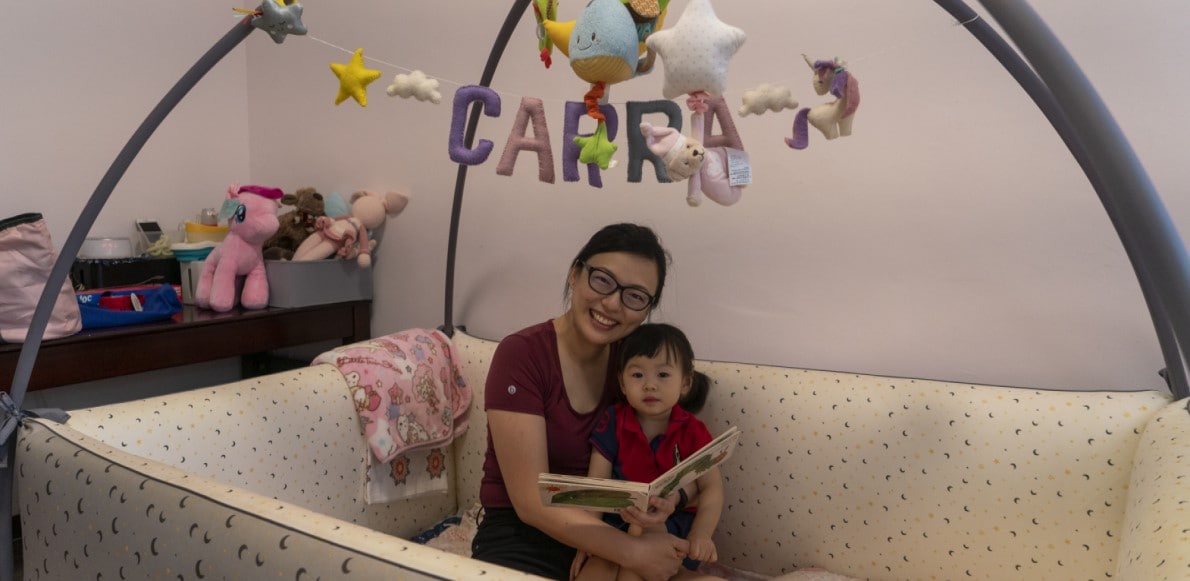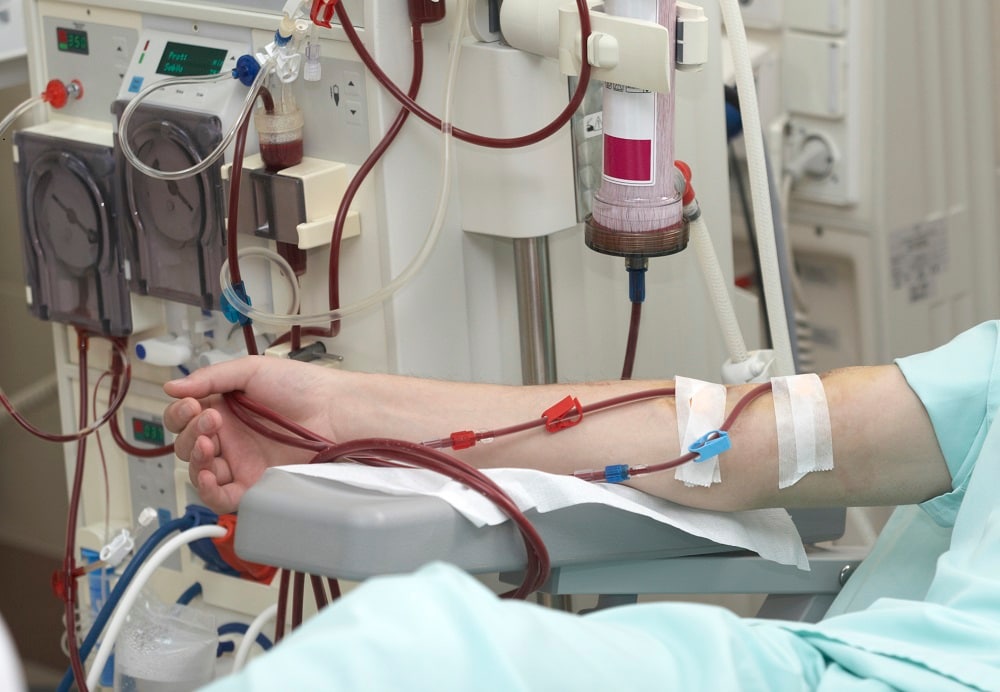Better Care and Support for Mothers With Gestational Diabetes
Better Care and Support for Mothers With Gestational Diabetes
The pilot Temasek Foundation Gestational Diabetes Mellitus Care Programme allows the condition to be detected earlier in expectant mothers, who have seen positive outcomes with timely intervention and close follow-up care.

Without a family history of diabetes and a mere weight gain of six kilograms throughout her pregnancy, it came as a surprise to Miss Jacey Yeh, an arts administrator, when she was diagnosed with gestational diabetes. Photo: Temasek
For up to seven times a day, Ms Jacey Yeh had to prick herself to check her blood sugar levels. She also had to resist her cravings and the temptations of sweet treats, as she had to stick to a strict diet.
Although it was her first pregnancy, she did not experience the usual symptoms of morning sickness, and fatigue. She also only gained 6kg throughout the pregnancy so it came as a surprise when she was diagnosed with gestational diabetes mellitus (GDM). Her family has no history of diabetes either.
“My biggest concern was the impact of the condition on my baby’s health,” recalled the 40-year-old arts administrator, who went on to give birth to a healthy baby girl in June 2018. “I tried to avoid sugar as much as possible and changed to multigrain bread and brown rice. But it was quite hard as food options are limited when eating out and it was hard for me to resist my favourite desserts like cakes.”
In Singapore, up to one in five women has GDM, a condition that affects pregnant women without existing diabetes due to high blood sugar levels. Ms Yeh was alerted to her condition during regular screenings at KK Women’s and Children’s Hospital (KKH).
Help arrived in the form of the Temasek Foundation Gestational Diabetes Mellitus (TF GDM) Care Programme. The pilot scheme, which ran from October 2016 to September 2019, was a collaboration between KKH and Temasek Foundation to improve detection, care and support for women with GDM and their families.
Almost 5,000 pregnant women with GDM and their families benefited from the programme.
GDM may impact the health of your child. And as mothers, we all want the best for our child. It might also impact our health if the condition is not managed properly.
Miss Jacey Yeh, Arts Administrator
Long Road to Recovery
Today, more than a year after giving birth, Ms Yeh’s blood sugar levels are still slightly above the norm. However, with the programme’s support, she is able to manage her condition well without the use of medications.
Following her successful delivery, she continued to go for blood sugar level checks as her doctor had warned that the condition could develop into Type 2 diabetes. Although GDM resolves itself in most women after pregnancy, there is a lifetime risk of up to 70 per cent that they would develop Type 2 diabetes post-delivery.
Type 2 diabetes is the most common form of diabetes, which causes the blood sugar level to become too high. Affected people are at risk of eye, nerve and kidney damage, among other complications.
The TF GDM Care Programme offers early GDM screening to all women in their 24th to 28th week of pregnancy. If GDM is detected, they will be monitored closely by Diabetes Care Navigators – specially-trained nurses who provide prenatal and postnatal education on nutrition, exercise and management of sugar levels at the ward before the mother is discharged.
Diabetes Care Navigators also refer all patients to a polyclinic of their choice and follow up with the polyclinic to track their visits and ensure continuity of care.
“As an academic medical centre that specialises in the healthcare needs of women and children, we are very interested in the topic of GDM as it is a common yet manageable condition,” said Professor Tan Kok Hian, Head and Senior Consultant, Perinatal Audit and Epidemiology Unit, Division of Obstetrics and Gynaecology at KKH.
At KKH, Ms Yeh learnt how to plan her diet and use a glucose tracker. She also got to sample a day of carefully planned meals that met her health needs.
In her third trimester, she was recommended to “walk for 15 minutes after food” but found it challenging as the position of her baby was putting pressure on a nerve, causing her legs to go numb. However, she pressed on for the sake of her child.
There is more that needs to be done, particularly in terms of education and awareness of the (GDM) condition.
Professor Tan Kok Hian, Head and Senior Consultant, Perinatal Audit and Epidemiology Unit, Division of Obstetrics and Gynaecology, KK Women's and Ch
Unable to compile class for JSP:
An error occurred at line: 24 in the jsp file: /apps/temasek-corporate/components/includes/stories-listing/subscribe-temasekgives.jsp
String literal is not properly closed by a double-quote
21: final String captchaError = slingXSS.encodeForHTML(valueMap.get("captchaError", "Please confirm that you are not a robot."));
22: final String consent = valueMap.containsKey("consent")?valueMap.get("consent", String.class):null;
23: final String googleReCaptchaSiteKey = sling.getService(ReCaptchaService.class).getSiteKey();
24: final String api = "https://temasek.us13.list-manage.com/subscribe/post?u=c6e8202786088f7032c129736&id=4d4b53142f&SIGNUP=" + request.getRequestURI()";
25: %>
26: <div class="news-insights-overly" data-is-temasek-gives-check="true">
27: <div class="news-insights-wrapper">
Cannot serve request to /content/temasek-corporate/en/news-and-resources/stories/community/Diabetes-Pregnancy.html on this server

